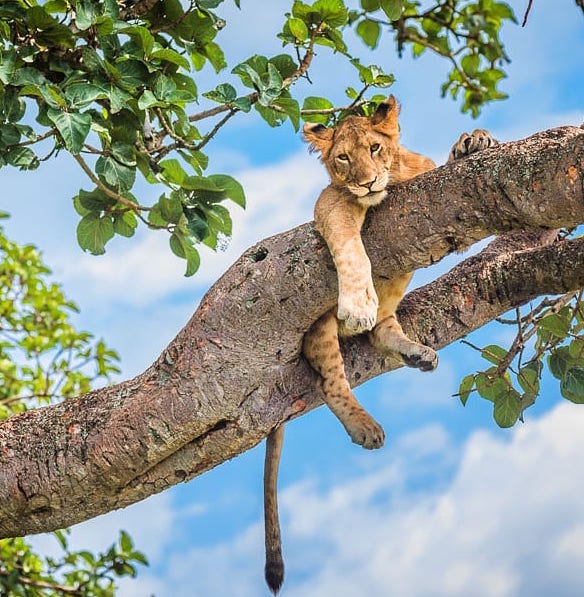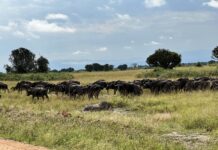Wildlife education is something; the government of Uganda has under looked over years. The officials tend to focus on promotion of wildlife tourism but not the significance of its conservation. This is something that does not come to the minds of the technocrats of this country yet it is very important. Tourism and wildlife are the biggest forex earner of Uganda but most Ugandans don’t know the importance of the existence of the various wildlife species in the different protected area.
The ignorance about wildlife existence came to my attention when I visited my father on Eid day last week at his home in Kyebando. I was watching TV with three of my brothers and our nephew. The youngest of my brother about 10 years Javed, he was in charge of the remote control since we the elders did not pay much attention what was being shown on the screen.
Nonetheless, as he browsed through the channel, he landed on a wildlife documentary and I hastily meddled in and requested him to keep on the channel. We all brought our attention to the TV screen while I conveyed the commentaries and insights about the wildlife documentary.
The documentary was about how a pride of lion is formed and survives in the jungles. It was captured in one of the most popular wildlife habitats in Zambia-Luangwa. The documentary showed how an adult lion confided a group of lone lionesses to join it and form a family. The family got new members in cubs. The cubs were taught by the adults all about the jungle life from the survival antics to the predatory ones.
As we got fully immersed into the documentary, there came a scene when the pride of lions ganged on the warthogs for prey. At the sight of the warthog, my youngest brother Javed excitedly shouted “eeh warthog”. I was so surprised that he knew the real name of the animal specie. I retaliated by asking him, how on earth he knew about the “warthog”! He talked it all out how his teacher taught them about a few wild animals in school. I asked my other younger brother Sama, “did you know about the warthog?” he is like, “I have seen it here and there on TV but I did not know its actual name, I know it as a wild pig”.
From there, we had a long conversation about wildlife as we watched on. Javed, my youngest brother hurled in numerous questions as I answered him. The hardest he asked was about the lion and the tiger, which one is the strongest? I told him that the tiger is the more powerful and he is like, “but they say the lion is the king of the Jungle”. I explained to him that the lion is regarded as the king of jungle because of its majestic behaviour but not for its strength. He further probed whether we have tigers in Uganda and I instantly answered yes and told him that they were brought into the country last year at Uganda Wildlife Education Centre, former Zoo in Entebbe.
While I tried to educate Javed about wildlife, Hajji Ausi my father came in. In disgust, he instructed us to change the channel we were watching. He made an explanation that he hated the lions because they feast on other animals. He further said that the lions are ruthless and he wishes that they are all killed. I chipped in and explained to him how the lions are very important in the natural world. I told him about the ecosystem and how it works. I made an insight of how the lion help to reduce some of these numerous animals in the ecosystem. I explained to him how the high producing animals like the warthogs, antelopes, zebras would destroy the natural environment through overgrazing if they were not reduced by the predators like the lions.
I further drove him into deep wildlife education, I told him how different animal species are found in different vegetation types. I gave him an example of lions; they are rarely found in tropical rain forests or equatorial vegetation. They are usually found in savannah plains. He nodded his head in believe as he enjoyed the conversation. He asked me about the gorillas and chimpanzees. I went on to inform him that primates like the gorillas and chimpanzees are the ones that thrive most in the tropical rain forests and this is why they are found in in the tropical rain forests of Kigezi highlands and Kibale forest respectively. He exclaimed, ooh!
While we were still having a chat about wildlife, he received a guest and the conversation was put to halt. I excused myself but I left with a face of a winner because I had changed a person’s perception about wildlife. I implore more people who know about wildlife to labour and try to educate those who don’t know about it.






